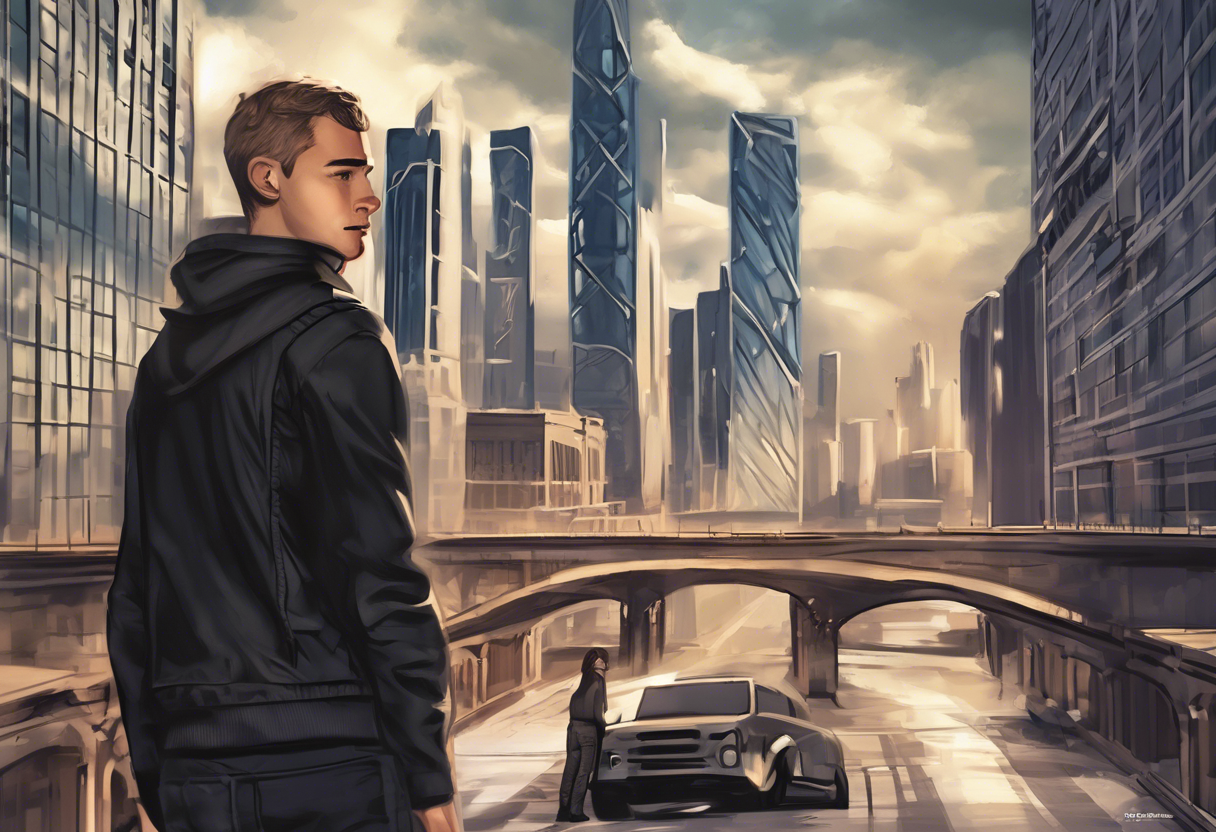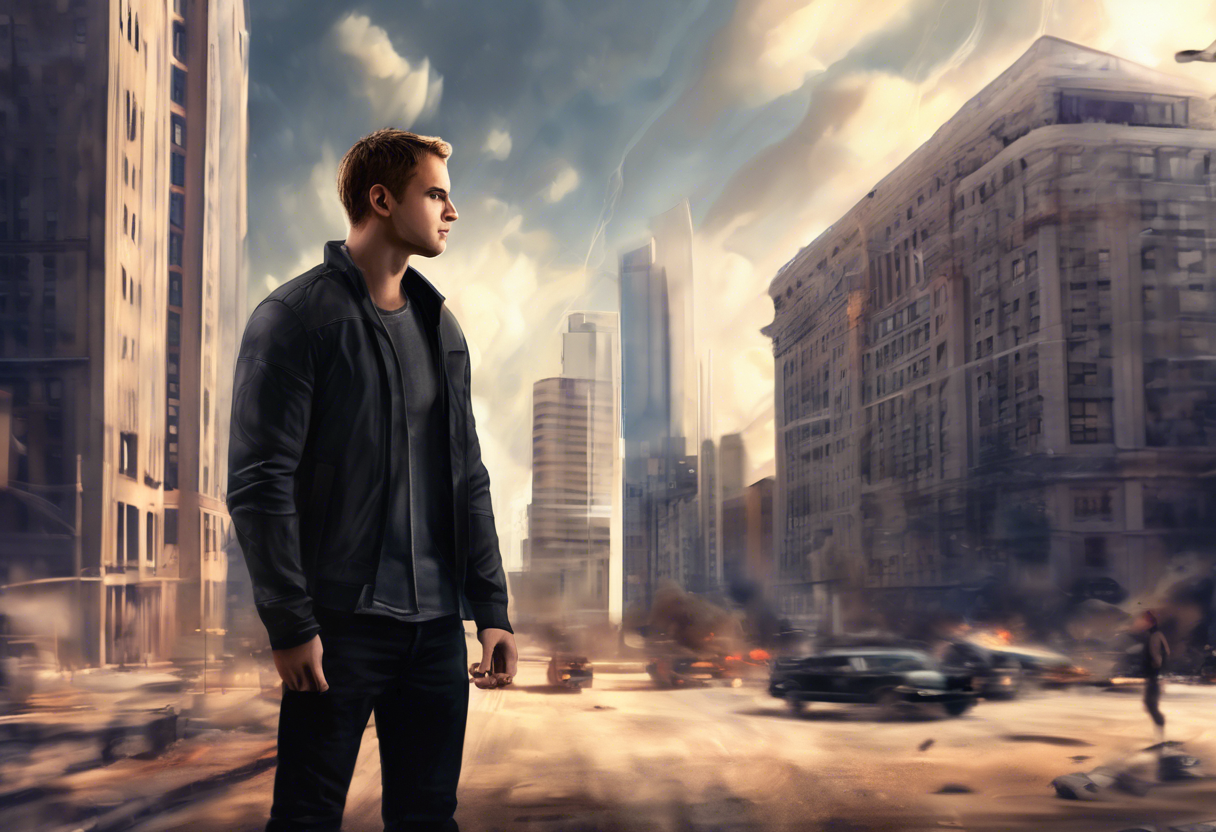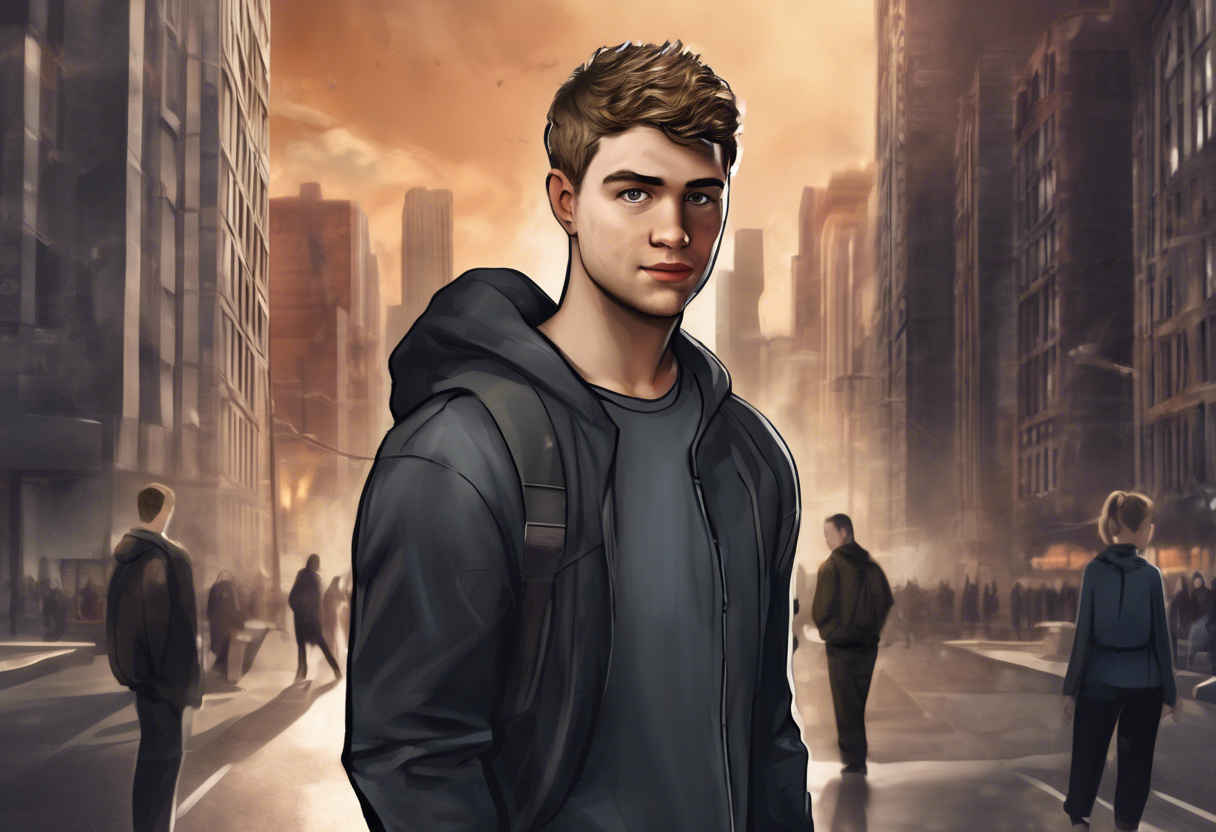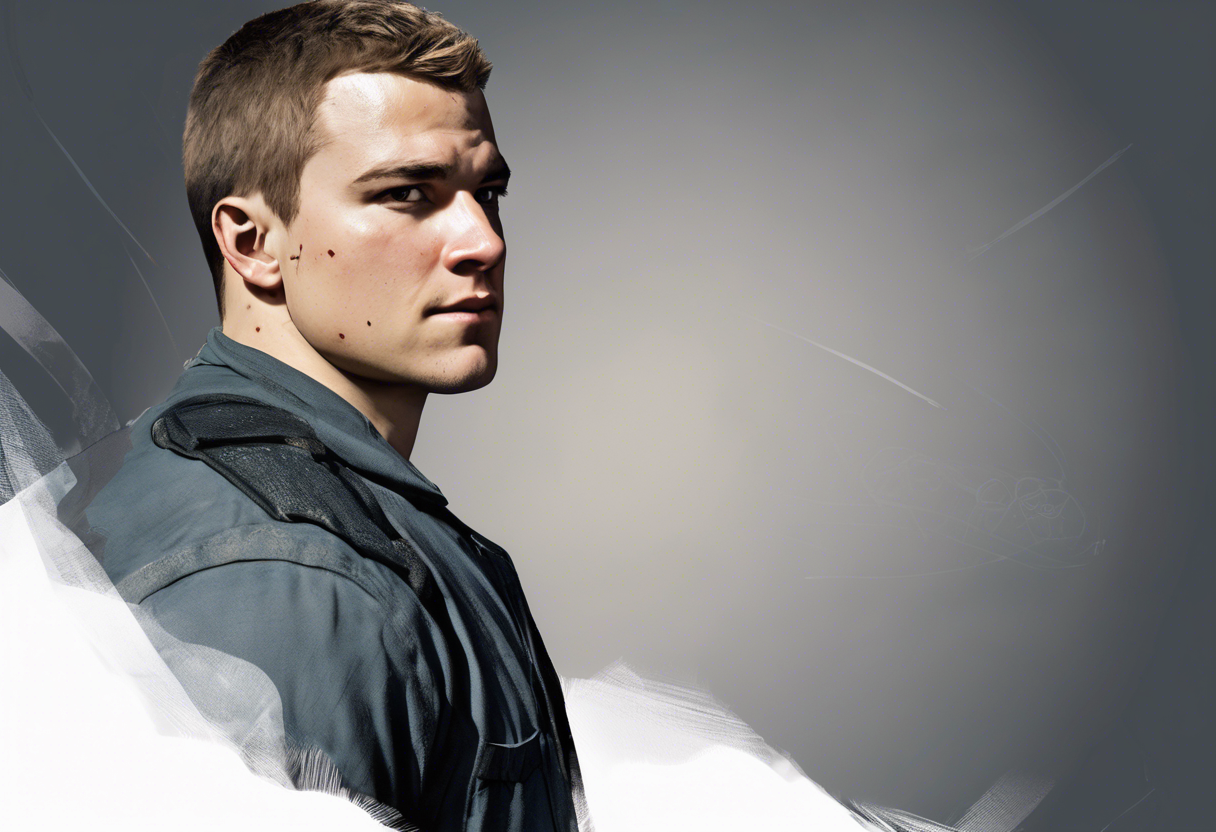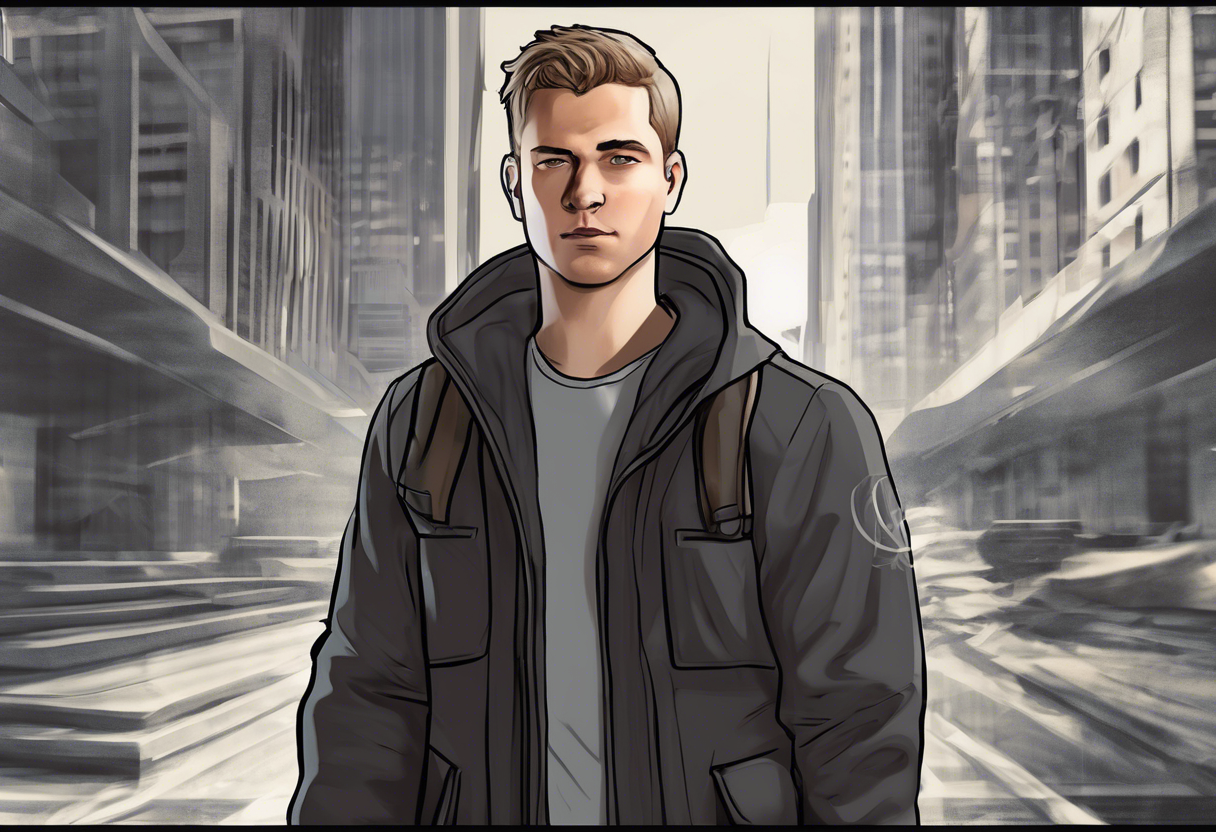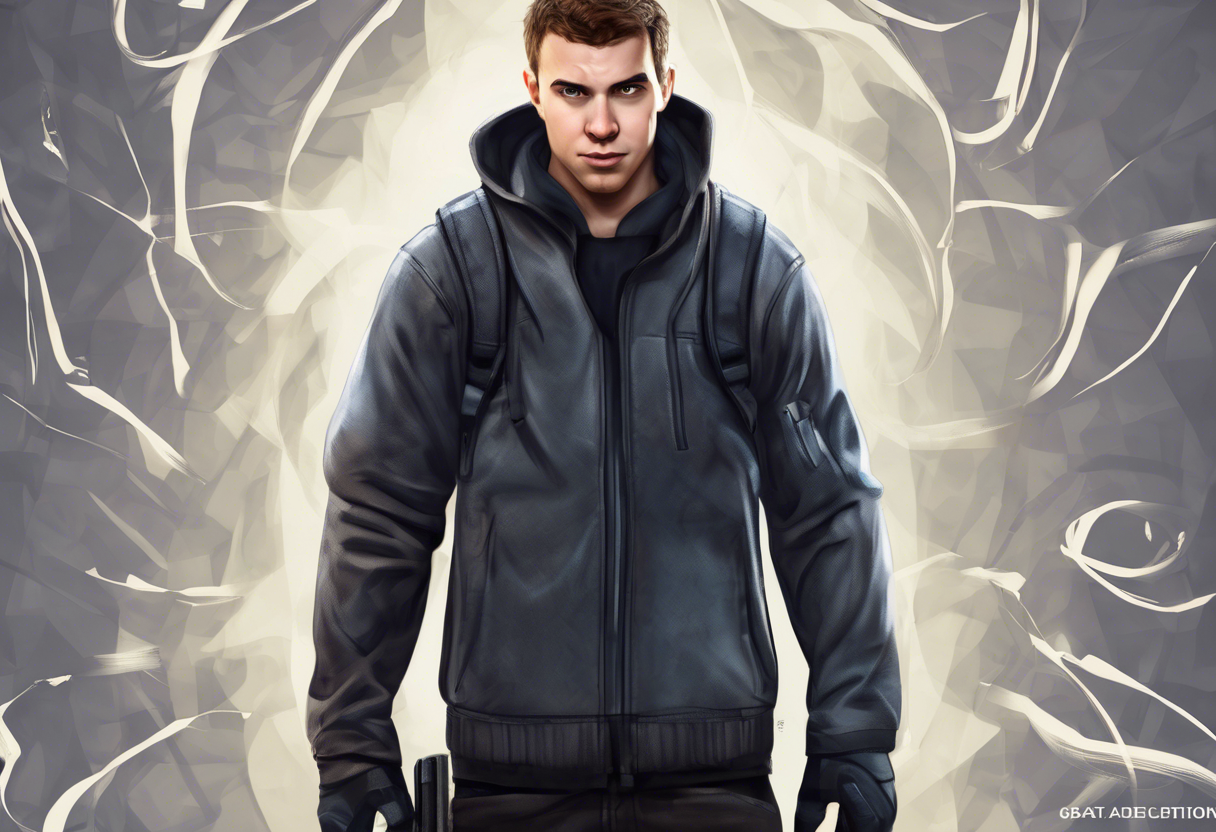Contents
Gabe: A Detailed Character Analysis from the Divergent Series
Introduction
Gabe is a significant character in the Divergent trilogy by Veronica Roth, although he is not as prominently featured as some of the main characters. He is part of the Dauntless faction and plays a crucial role in the narrative, particularly in the second book, Insurgent. Gabe’s character is intertwined with the themes of selflessness, loyalty, and the complexities of human relationships within the dystopian world of the series.
Gabe’s origins are rooted in the Dauntless faction, where he undergoes the initiation process alongside other characters like Tris Prior and her friends. His backstory, while not extensively detailed, highlights his integration into the Dauntless culture and his adherence to its values of bravery and loyalty. Gabe’s defining traits include his bravery, loyalty, and a deep sense of empathy, which are pivotal in his interactions with other characters.
Within the narrative, Gabe’s significance lies in his relationships and the key events he is involved in, particularly his interactions with Tris, Marlene, and Lynn. His character adds depth to the story by exploring the personal struggles and emotional journeys of secondary characters in the series.
Role in the Story
Gabe’s storyline is closely tied to the events of Insurgent. He is introduced as a member of Dauntless who becomes involved in the conflicts between the factions, especially when Eric attacks Candor and releases a new serum that does not affect Divergents like Gabe and Tris. This revelation makes Gabe an important figure in the resistance against Erudite’s plans.
Gabe’s journey involves significant personal relationships. He starts flirting with Marlene, which creates tension with Lynn, who is also close to Marlene. This triangle of relationships is complicated by the harsh realities of their world. When Marlene becomes a victim of the new serum and kills herself, Gabe is deeply affected, showing a vulnerable side to his character[1].
Gabe also plays a crucial role in supporting Tris during critical moments. He escorts Tris after she is accused of being a traitor and helps her navigate the complexities of the faction conflicts. His actions demonstrate his loyalty and trustworthiness, even in the face of adversity.
Character Analysis
Gabe’s personality is marked by his bravery, loyalty, and emotional depth. He is a character who is deeply affected by the events around him, particularly the loss of those close to him. His motivations are driven by a sense of duty to his faction and his friends, as well as a desire to protect them from harm.
One of Gabe’s strengths is his ability to form strong, meaningful relationships. His connection with Marlene and his subsequent grief over her death highlight his capacity for deep emotional attachment. However, this also exposes one of his flaws: his vulnerability to emotional pain. Gabe’s character development is significant as he navigates these emotional challenges and continues to support his friends despite his own suffering.
Gabe’s character makes him compelling and relatable to audiences because he represents the human side of the characters in the series. Unlike some of the more central characters who are often portrayed as strong and resilient, Gabe shows a more vulnerable and emotional side, making him more accessible to readers.
Themes and Symbolism
Gabe embodies several themes that are central to the Divergent series. One of the primary themes is the importance of human relationships and the emotional toll of loss. Gabe’s relationships with Marlene and Lynn, and his reaction to Marlene’s death, underscore the human cost of the conflicts in the series.
Another theme Gabe represents is loyalty and duty. His actions are consistently driven by a sense of loyalty to his friends and faction, even when it puts him in danger. This loyalty is symbolic of the bonds that hold the characters together in the face of adversity.
Gabe also contributes to the theme of self-discovery and emotional growth. Through his experiences, he learns to cope with loss and continue to support those around him, showing a growth in his emotional resilience.
Cultural Impact
Gabe’s character, while not as widely recognized as some of the main characters, has a significant impact on the cultural reception of the Divergent series. Fans appreciate his nuanced portrayal and the emotional depth he brings to the story. In adaptations and spin-offs, characters like Gabe are often highlighted for their complexity and the way they enrich the narrative.
In popular culture, characters like Gabe who exhibit vulnerability and emotional depth are increasingly valued. This shift reflects a broader cultural appreciation for characters that are more relatable and human, rather than just strong or heroic archetypes.
Critical Reception
Critics and audiences have generally praised Gabe’s character for adding depth and emotional complexity to the series. His relationships and emotional journey are seen as a highlight of the second book, Insurgent. However, some critics have noted that his character could be further developed, as he is not as central to the narrative as other characters.
There have been no major controversies surrounding Gabe’s character, but there are varying interpretations of his role. Some see him as a minor but significant character who adds to the emotional tapestry of the story, while others might view him as a character who could have been explored more extensively.
Legacy
Gabe’s enduring appeal lies in his relatability and the emotional depth he brings to the series. His character has inspired other works by showing that even secondary characters can have profound impacts on the narrative. In contemporary discussions, characters like Gabe are often cited as examples of well-developed secondary characters who enrich the story without overshadowing the main protagonists.
Gabe’s legacy also extends to the broader literary tradition of dystopian fiction. His character represents a shift towards more nuanced and emotionally complex characters in this genre, reflecting a growing interest in the personal and emotional journeys of characters in dystopian worlds.
References
- https://en.wikipedia.org/wiki/List_of_Divergent_characters
- https://en.wikipedia.org/wiki/Veronica_Roth
- https://www.sparknotes.com/lit/divergent/characters/
- https://www.sausd.us/cms/lib/CA01000471/Centricity/Domain/241/Divergent.pdf
- https://downtherabbitholeblog.com/2015/05/14/review-four-by-veronica-roth/

